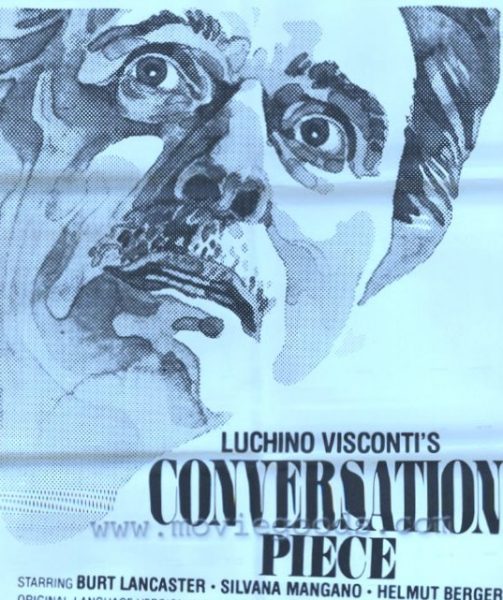Available on DVD/Blue-Ray now
Who was Burt Lancaster’s career adviser? The actor – he started out as an athlete and acrobat – survived five decades in some classic and hugely enjoyable movies. From his debut in The Killers to serious Hollywood fare like The Swimmer to cameo roles in such modern classics as Local Hero, he also had a rewarding collaboration with Luchino Visconti in films towards the ends of both their lives. Lancaster’s movies spanned everything from hard-bitten Westerns to torrid melodramas (From Here to Eternity). He’s been described as the last movie star.
The retired science professor, played by Lancaster, leads a cultured life in modern-day Rome. In his brown, fusty, book-lined sitting-room stuffed with exquisite old masters he plays opera records. It’s a serious setting for a serious man. His upstairs apartment is empty and the pushy Marchesa Brumonti (Silvana Mangano), her daughter and her boyfriend and the Marchesa’s dishy dirty-blond companion, Konrad (Helmut Berger) have their eye on it. It’s as if the younger Kardashians want to bunk up with the Archbishop of Canterbury. The rooms and the architecture have a fabulously operatic look and feel – a hallmark of Visconti’s films. The professor is reluctant to rent the apartment but the euphoric Eurotrash inveigle their way into his affections. Maybe the professor is most interested in Konrad who is as louche and impetuous as he is cynical and arrogant (perhaps an echo of the professor as a young man). The invasion of the professor’s staid if ordered life is complete when the Marchesa’s family finally moves in and start knocking down walls, literally and metaphorically. The frightening Marchesa, swathed in YSL and Fendi furs, and who lives in a state of perpetual hysteria, makes Medea look like the Little Mermaid. The enigmatic professor is clearly a cipher for the director (Berger was Visconti’s lover and muse).
The film is a far more nuanced affair than Visconti’s earlier Death in Venice although it shares a lot of the same themes – youth versus age, the old world against the new, regret and loss. This notion of personal space invasion was popular at the time in European art cinema (think of Losey’s The Servant or Pasolini’s Teorema). The dissipated and sexually incontinent Konrad represents everything the professor loathes (or maybe secretly longs for). The older man wants to set the younger on the straight and narrow path but it’s clear to everyone that Konrad is doomed. In the disc’s extras viewers can discover what happened to the debauched Konrad, here is Helmut Berger now in his 70s no longer the chiselled blond but a victim, it seems, of Dame Time and Witch Gin.
When Konrad is assaulted (gay bashed?) he is stowed away in the professor’s hidden room. As he has his bloodied face bathed much unsaid hangs in the air. ‘You can’t wait for me to leave, can you professor?’ says Konrad, the destroying angel. ‘In a way,’ cometh the answer. It’s Lancaster who commands the screen throughout in this, Visconti’s penultimate movie. The professor’s life is enriched by his noisy neighbours in ways he can barely articulate.
And although the plot’s set-up becomes increasingly wobbly (as if the director has fallen in love with the film and doesn’t want to let go) this Blu-ray transfer is radiant and can’t be faulted, something Visconti and his cinematographer Pasqualino De Santis surely deserve.
